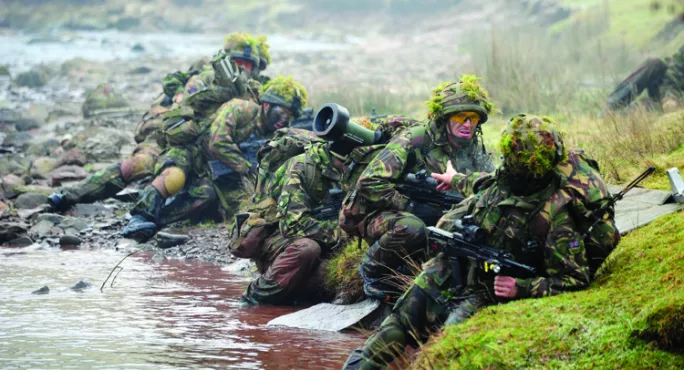After leaving university, I attended the Royal Military Academy Sandhurst. I then spent eight years as an officer in the Light Infantry regiment. It was there, at a relatively young age, that I received some of the finest leadership development in the world.
The Army ensures that its officers can tackle difficulties in almost any situation. Written in the front of every Army officer’s Tactical Aide Memoire is a quotation from von Moltke the Elder, the 19th century Prussian field marshal: “No plan survives contact with the enemy.” In other words, things rarely play out as intended; what matters is how one reacts, exercises initiative, adapts and improvises while under pressure.
This is a great lesson for leadership - both in the Army and in schools.
At the age of 24, I was entrusted with the leadership of a platoon - 30 soldiers, almost all of whom were more experienced than me - for two operational tours of South Armagh in the space of 12 months. I made a great many mistakes, but I learned from them and got better at avoiding them; no one was killed. An infantry unit is a values-based community of practice, in which everyone is encouraged to share beliefs and values, to work together and in the interests of others.
This template is as appropriate for a school as in any other organisation. It is about human behaviour, getting the best out of people as individuals, but also as a team; identifying and developing leaders and then, crucially, trusting them to do their job.
Clear aim and purpose
Great leaders should establish and hone a convincing vision that gives meaning to the work of everyone. This allows staff at all levels to develop as leaders - people will have the confidence to make decisions because they understand the context and how their course of action might support the overall vision. It’s all about empowering staff and encouraging the use of initiative and calculated risk-taking. Give people tasks with a clear aim and purpose, but leave the “how to do it” part to them.
Leadership development within schools is inconsistent. Some do it very well, others don’t. Greater consistency would benefit pupils, the staff, the school and the sector as a whole. If there is no widespread, consistent, systematic method of identifying and developing future leaders, then much leadership potential is overlooked; surely there are many whose talents are lying dormant and undeveloped. As a profession, we can’t afford this.
Too many school leaders, in my opinion, regard themselves (or their role) as the indispensable keystone, and from there it’s a short step to a lack of trust, micromanagement or a lack of delegation.
However capable the leader, this sort of “heroic” leadership is clunky and no longer fit for purpose in our chaotic, ad-hoc and fast-paced world. Modern leadership is about enabling and creating the broader environment. Stanley McChrystal describes it in his 2015 book, Team of Teams, as a change from “controlling puppet master to empathetic crafter of culture”.
It’s not easy, however, and in a school it means the head has to give up control, yet retain responsibility. They have to step back, resist the urge to provide solutions and allow the freedom to innovate and experiment.
Trust. The fact is that if you don’t trust - really trust - your managers, then you will fail as a leader.
In a few months’ time, I will leave Warminster School, so increasingly I am being asked about my legacy. What do I hope it will be? My answer is simple: I’m not to be missed. Not to be missed, because we have high-quality leadership at all levels and, on a day-to-day basis, I’m the least important person in the school. If I don’t turn up, only my PA should notice.
Mark Mortimer is headmaster at Warminster School, Wiltshire
